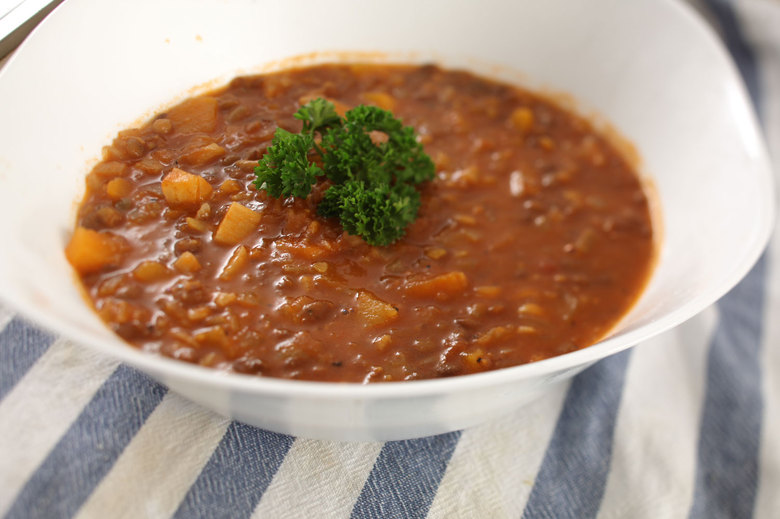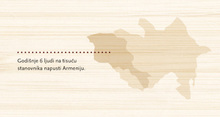Tamara is Armenian coming from Azerbaijan's capital Baku. As a twelve-year-old girl she was forced to move to Russia where she was not accepted. She was not of "proper" nationality, her brother was severely beaten because he is Armenian and had to spend a long time in the hospital due to injuries sustained. When her daughter was attacked in the school yard, she decided to leave Russia and come to Croatia. She lives here with her husband and two children who are attending school. She is taking a course for a hairdresser. In Croatia, which shares certain culinary characteristics with Armenia, Tamara often bakes cream-filled cakes in the summer and pastries for the family, makes soups and stews and prepares the meat when they have money to buy it.
- When I was 12, I had to move from Azerbaijan to Russia. In Russia it was bad, we were not accepted. When you phone about a job, they ask you what’s your nationality, and if you’re not Russian, you can’t get a job. And when you come to a job interview, they immediately see who you are and again - nothing. They want only Russians. My brother had served in the army for a long time, he returned beaten up because he was Armenian, and spent a long time in the hospital. It was not good there, and, well, we suffered. When my daughter started school, I thought it would be better, they will behave differently, that the times have changed. But I was wrong, everything was as before. You can’t go to school and be alone in the school yard, you are immediately attacked. I've decided that I do not want my daughter to have the same life I had. We came to Croatia. One day she came all smiling and surprised from the school. "Mom, they do not believe me when I say that I came from Russia, they think I'm a Croat. They do not see the difference. So they asked me to say something in Russian. I began to count один, два, три... " It's nice for us here, they do not behave badly towards us because we are Armenians. As it should be, normally.
I am Armenian, but I've never been in Armenia. My grandmother moved to Azerbaijan when she was young. Everything I cooked was in Armenian way as my grandmother taught me everything.
Tamara’s favourite childhood food are eggs with tomatoes. This simple dish requires only 3 tomatoes, peeled and chopped into small pieces, a little bit of oil and basil, salt and pepper to taste. First, sauté tomatoes and when they’ve softened pour over the beaten eggs. Fry until golden, then turn to seal.
- My mom and my grandmother were making eggs with tomatoes for me. But more often my grandmother. Mom and dad worked all day, and the grandmother was taking care of me, my sister and brother. In the evening, when mom and dad came from work, we all sat down and ate together. I can’t remember what we talked about over the food, it was a long time ago. Even today I eat eggs with tomatoes and prepare it for my children. Sometimes I add spring onion and it’s very tasty. My other favorite dish is Bozbash, the same one that grandmother taught me to cook. I’m cooking it nowadays, when I have the money for the meat.
Here, I cook for myself and my children. After the school, we all eat together. I’m learning Croatian with my children, they already learned it so it’s easier to learn with them. When I cook, I ask them how do you say this or that in Croatian, but they say they don’t know because that’s not what they learn in school. Croatian and Armenian cuisine are similar, at least I can find all the ingredients that I need. In the summer I make cream-filled cakes and pastries that are made here, and I cook soups and stews when I have money for the meat. I miss the lavash flat bread. Lavash is baked in clay ovens after the dough is thinly rolled. I cannot make it here, I could only make it at home. I can do dolma here. Dolma is similar to sarma, the meat is wrapped in vine leaves and cooked. Now I have the vine leaves in the courtyard of the building in which we live. Except with meat, it can be stuffed with onions, garlic, tomatoes, zucchini and cucumber.

